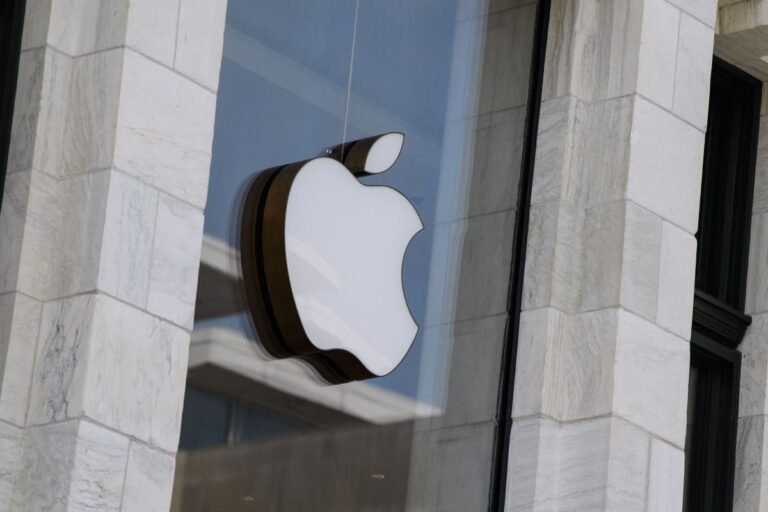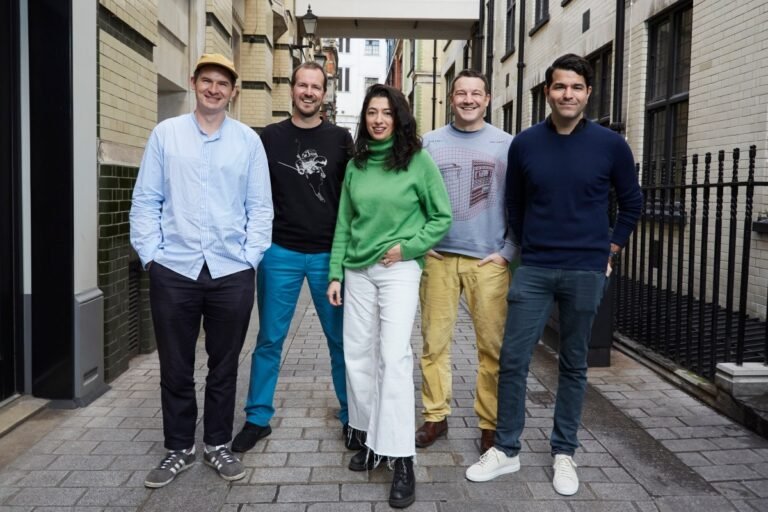
TikTok is introducing a data portability API to help it comply with new European regulations designed to rein in Big Tech’s market dominance through various obligations and restrictions.
Data transfersData portability and interoperability constitutes a major part of the DMA regulations, and tech companies have been bolstering their efforts on this front for several years in preparation.
Thus the data portability API goes some way toward addressing that limitation, allowing third-party developers to build conduits for data to travel from TikTok to their own apps — if the user authorizes this.
Through the API, developers can request access to “all available data,” or individual categories including TikTok posts and profile data, activity, and direct messages (DMs).
The data portability API is available to applicants globally, but the developer must be able to demonstrate a “well-defined use case” before they will be approved.

Apple says it plans to appeal the historic €1.84 billion fine issued today by the European Commission over Apple’s anticompetitive practices in the streaming music market.
Apple again stressed that Spotify pays Apple nothing in terms of App Store commissions because it sells its subscriptions only on Apple’s website.
“They want to use Apple’s tools and technologies, distribute on the App Store, and benefit from the trust we’ve built with users — and to pay Apple nothing for it,” Apple says.
“In short, Spotify wants more.”Apple says that while it respects the European Commission, the facts don’t support the decision, and ” as a result, Apple will appeal.”“Every day, teams at Apple work to keep that dream alive,” Apple wrote.
“We do it by making the App Store the safest and best experience for our users.

A few years ago, setting up shop in Europe was the soup du jour for North American VCs.
North American VCs, understandably, want a piece of that market, but setting up a successful, long-term strategy in the region hasn’t proved easy.
The European startup market comes with nuances that make it a difficult one for North American investors.
It’s no wonder then that North American investors have struggled to find a secure footing as they try to straddle the Atlantic.
The American guys will enter anyway at the Series A or B.”Reason to keep tryingDespite all those challenges, though, North American firms are still trying to plant roots in the region.

Eva Maydell is a Bulgarian politician and a member of European Parliament.
Eva Maydell, member of European ParliamentBriefly, how did you get your start in AI?
When I first became a member of the European Parliament, I was one of the few young female members of European Parliament (MEPs) that worked on tech issues.
The more women keep sharing their ideas, visions and voice, the more they will inspire other women to step into the world of tech.
The greatest challenge for any politician working on tech and AI is trying to regulate and prepare for the future with accuracy.

Kost Capital, a new Danish venture capital fund, is out to bring better food to more people.
That’s because Kost Capital shares space with Kost Studio, a food development studio that doubles as a test kitchen for universities and markets to collaborate and develop novel food products.
Kost Capital invests in pre-seed and seed startups across Europe, focusing on B2B inputs in the future of food.
Sidén’s journey to venture capital started in a quite unique place.
Acknowledging a growing population, climate change, food waste, health issues and policy changes, Sidén says more funding is needed into food tech.

A $58M round for this European Mycelium startup shows the tech is on the cusp of big thingsInfinite Roots (IR), formerly Mushlabs, is a German biotech company which has been plying the furrow of Mycelium, the material coming from fungi which has been hailed as something of an answer to everything from food to building materials.
Existing investors, including Clay Capital, FoodLabs, Redalpine, Simon Capital and Happiness Capital also participated.
Prior to this round IR had raised a Series A of $10 million.
The company said it plans to use the new round to switch into commercial growth, expand its production capacities, and invest in launch activities.
For instance, last year Meati Foods moved into full-scale production of its mycelium-based whole-food protein, launching a “Mega Ranch,” in Colorado financed in part by a $150 million Series C round and an extension round of $22 million.

A $58M round for this European Mycelium startup shows the tech is on the cusp of big thingsInfinite Roots (IR), formerly Mushlabs, is a German biotech company which has been plying the furrow of Mycelium, the material coming from fungi which has been hailed as something of an answer to everything from food to building materials.
Existing investors, including Clay Capital, FoodLabs, Redalpine, Simon Capital and Happiness Capital also participated.
Prior to this round IR had raised a Series A of $10 million.
The company said it plans to use the new round to switch into commercial growth, expand its production capacities, and invest in launch activities.
For instance, last year Meati Foods moved into full-scale production of its mycelium-based whole-food protein, launching a “Mega Ranch,” in Colorado financed in part by a $150 million Series C round and an extension round of $22 million.

Now, Plural itself is scaling up, with a fresh €400 million fund to back what Hogarth refers to as “transformational” startups in the region, bringing more operational know-how to get them running as businesses.
Just six months before, Atomico reported, in its annual survey, that startups in Europe had raised a record $100 billion 2021.
Plural’s €250 million debut fund itself was arguably a product of that: it was actually intended to be €150 million.
Even Plural has sat on some of its money: Hinrikus said in an interview that it’s still making investments out of its first fund.
“[With] AI right now, there’s a huge number of people building businesses that look identical to 500 other startups.

The deal’s latest hurdle is the European Commission, which has set a February 14 deadline to reach a final decision.
According to a new report, the EU regulatory body is set to vote against acquisition, citing the perceived anti-competitive nature of deal.
In July, Amazon announced that it was lowering its asking price from $61 to $51.75 per share.
The day the initial deal was announced, iRobot cut its headcount by 10% — around 140 people – as part of a restructure.
As of this writing, share prices have dipped below $20 – one-third of where things where when the deal was announced.

The European Parliament is calling for new rules to bring more fairness and transparency to music-streaming across the bloc, including proposals for a new bill to force streaming platforms to open up their recommendation algorithms.
The bill would also require Spotify et al to make it clear where a song has been generated by artificial intelligence (AI).
While final details are far from set in stone, this might eventually include setting quotas to showcase a certain amount of work from European artists.
However, the company performed a 180-degree turn when the government gave assurances that music-streaming platforms wouldn’t be expected to cover extra costs resulting from the law.
In response, Spotify vowed to cut back its investment in the French market, starting with pulling support for two music festivals.













